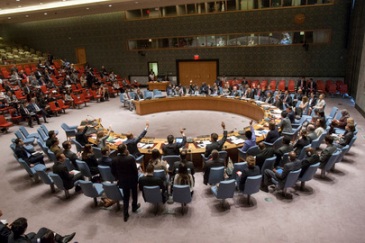South Sudan wants hybrid court formation delayed
May 28, 2016 (JUBA) – A senior South Sudanese government official said time should be given for the country’s newly formed Transitional Government National Unity (TGoNU) to evolve, at the expense of justice for victims of the atrocities committed during its conflict.

Akot said President Salva Kiir took many steps in the implementation of peace accord and it was time to thoroughly follow by ending “a vestige of the Cold War between foreign countries with varying political, security and economic interests in the young country.”
“The priority now is the need from the international community to stand with the transitional government of national unity and provide the necessary support to be able to establish itself and function. The second priority is to encourage the parties to build trust and to demonstrate willingness to work together as a team then the time for the rest will come,” Akot told Sudan Tribune Saturday.
“Establishing the court now when the agreement itself has not been implemented is not a priority. It will derail the process”, he added.
A senior diplomat at the country’s foreign affairs ministry separately told Sudan Tribune that he prefers implementation of the peace accord remains first priority.
“I think those calling for establishment of hybrid court now are like people trying to put the cart before the horse. It will not work. Establishing the court now implies that officials on both sides who have issues to answer before the court, and who are in the government will not be happy and if they are not happy, it will affect the process”, said the diplomat, who preferred anonymity.
Gordon Buay, a South Sudanese envoy in United States, said establishing a court now “would create chaos” in the country.
“Establishing a hybrid court now will not foster reconciliation. It would increase the level of anarchy, because the parties to the conflict are now in the government. The best way to handle this is to allow them implement the peace agreement”, Buay said Thursday.
His comments came in response to a report by the Enough Project, which advocated for establishment of a hybrid court to try officials who committed atrocities during the war.
The US-based Human Rights Watch said the transitional government of national unity, should ask the African Union to promptly establish the hybrid tribunal envisioned in the August 2015 peace deal to try serious crimes in South Sudan.
“National authorities should also investigate and fairly prosecute human rights violations. The UN peacekeeping mission should also report publicly on the abuses and the government’s response,” it said in a report issued Tuesday.
According to the rights body, South Sudan government soldiers carried out a wide range of often-deadly attacks on civilians in and around the country’s western town of Wau.
The soldiers, it alleged, killed, tortured, raped, and detained civilians and looted and burned down homes in the attacks.
Abuses in the Western Bahr el Ghazal region reportedly took place during government counterinsurgency operations that intensified after a peace deal was signed last year.
The attacks, the rights body stressed, underscored the need for the national unity government to take immediate steps toward accountability for crimes by all warring parties since the start of South Sudan’s conflict in mid-December 2013.
(ST)
